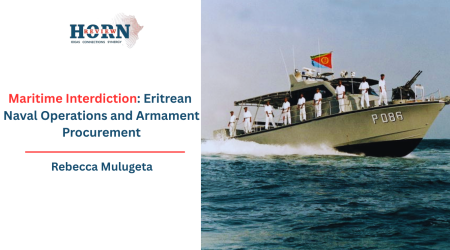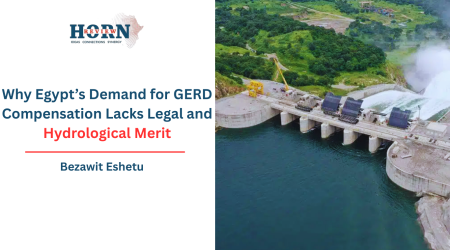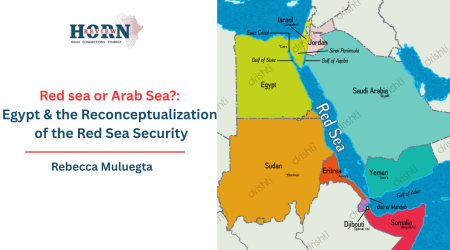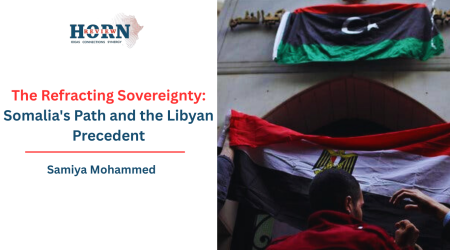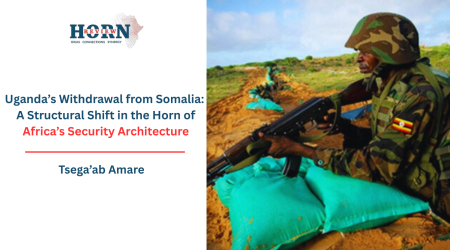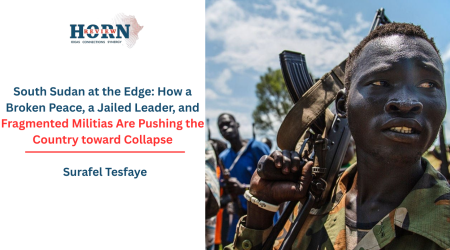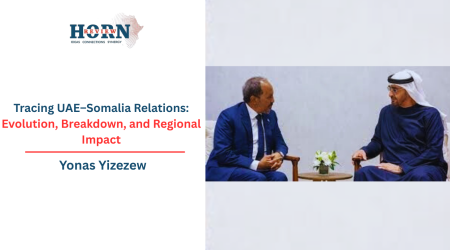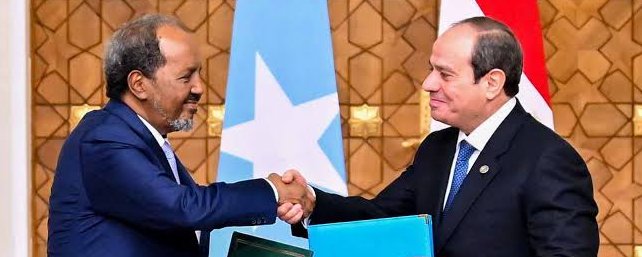
24
Jul
Strategic Balances in Flux: Egypt, Somalia, and the Emerging Post-GERD Order
The Horn of Africa has long been a theater of intricate geopolitical interplay, where entrenched rivalries, evolving ambitions, and competing interests converge amid urgent questions of sovereignty, security, and resource governance. From the protracted Somaliland–Ethiopia memorandum of understanding to the Ankara Declaration and the recent conclusion of the Ankara Process -*albeit with limited visibility at the Global Transport Connectivity Forum – the region has borne witness to recurring strategic tensions. The recent high-level engagement between Somalia and Egypt in Alamein, taking place in the immediate aftermath of Ethiopia’s formal announcement of the completion of the Grand Ethiopian Renaissance Dam (GERD), marks another critical juncture. The question that arises is whether this summit constitutes a routine diplomatic formality or whether it signals a deeper recalibration of alliances and power dynamics that may ultimately reshape the regional order across the Horn of Africa and beyond.
Central to this evolving landscape is Egypt’s increasingly consolidated alignment with Somalia – a relationship that has evolved from symbolic gestures to a more deliberate political and security convergence. Egypt’s strategic calculus appears both transparent and deliberate: to counterbalance Ethiopia’s expanding regional footprint, particularly in light of GERD’s finalization – a development Cairo continues to view with unease. Egyptian policymakers and media routinely characterize the dam not as a neutral infrastructure project but as an existential threat to the nation’s water security and, by extension, its national survival. While Egypt itself has invested heavily in water-intensive desert agriculture, its leadership maintains a firm stance that even minimal reductions in Nile water flow are unacceptable.
Egypt’s engagement with Somalia, framed officially as part of a stabilizing regional initiative, also serves more calculated ends – namely, constraining Ethiopia’s regional ascendancy. This support for Mogadishu is not confined to counterterrorism cooperation targeting al-Shabaab; rather, it signals an assertion of influence and an implicit challenge to any regional reordering perceived to threaten Cairo’s strategic interests. Yet the complexities on the ground in Somalia illustrate a sobering contradiction. Despite Egypt’s political and military backing, al-Shabaab continues to launch high-impact attacks – including some that notably coincide with Somali President Hassan Sheikh Mohamud’s visits to Cairo. The recent fall of the Moqokori district to militant forces underscores the fragility of Somalia’s security architecture and its entanglement in broader geopolitical contests playing out in the Horn.
Cairo’s long-standing practice of articulating “red lines” in its regional diplomacy – most notably in Libya’s Sirte-Jufra axis and in response to GERD developments – has continued with consistent messaging directed at Addis Ababa. Between 2021 and 2024, Egypt issued a series of unequivocal warnings aimed at curbing what it perceives as Ethiopia’s unilateralism, whether in hydropolitics or its nascent maritime aspirations in the Red Sea. Nevertheless, Ethiopia has pressed forward, completing the GERD despite mounting external objections. The formal end of the Ankara Process, as reported by Africa Intelligence, leaves Somalia and Ethiopia to address outstanding technical and political issues bilaterally. This development raises the question of whether Ethiopia will now seize the opportunity to finalize the memorandum of understanding with Somaliland, a move that could further escalate regional tensions.
The recent summit between Egypt and Somalia reaffirmed Cairo’s intention to reactivate trilateral cooperation mechanisms involving Somalia and Eritrea, while also reiterating its demand for a legally binding agreement on GERD’s filling and operation – one that would effectively institutionalize Egyptian oversight over the dam’s management. This proposition, however, constitutes a direct challenge to Ethiopian sovereignty. Should a nation of over 120 million people – having self-financed and constructed the dam – be compelled to relinquish operational control to downstream actors? While Egypt frames its demands as safeguards for regional water equity and national security, Ethiopian observers view them as symptomatic of an enduring policy posture aimed at containing Ethiopia’s rightful development trajectory, access to maritime outlets, and utilization of transboundary resources.
Egypt continues to mobilize diplomatic support through multilateral platforms including the African Union, the United States, and the European Union, pressing for external involvement to compel Ethiopia into a binding framework. Its deepening ties with Somalia reflect a broader strategy to shape the geopolitical contours of the region in line with its long-term interests.
Nonetheless, despite intensified diplomacy and sustained opposition from Egypt, Ethiopia has completed GERD and continues to assert its sovereign rights over its infrastructure and national agenda. This trajectory signals Ethiopia’s emergence as a self-confident regional actor. The way these dynamics evolve will carry significant implications for peace, cooperation, and regional integration in the Horn. Sustainable progress demands a recalibration of national interests in tandem with inclusive regional dialogue. As members of platforms such as BRICS and custodians of collective development in Africa, states in the region must prioritize diplomatic transparency, internal cohesion, and principled engagement to mitigate external pressures and preserve strategic autonomy.
Despite Cairo’s unequivocal declarations opposing Ethiopia’s potential acquisition of sea access, Addis Ababa is likely to pursue its naval ambitions with the same resolve that enabled it to complete the GERD against formidable resistance. As the adage suggests, while voices of dissent may persist, Ethiopia appears committed to advancing its long-term strategic imperatives.
By Rebecca Mulugeta,Researcher,Horn Review

